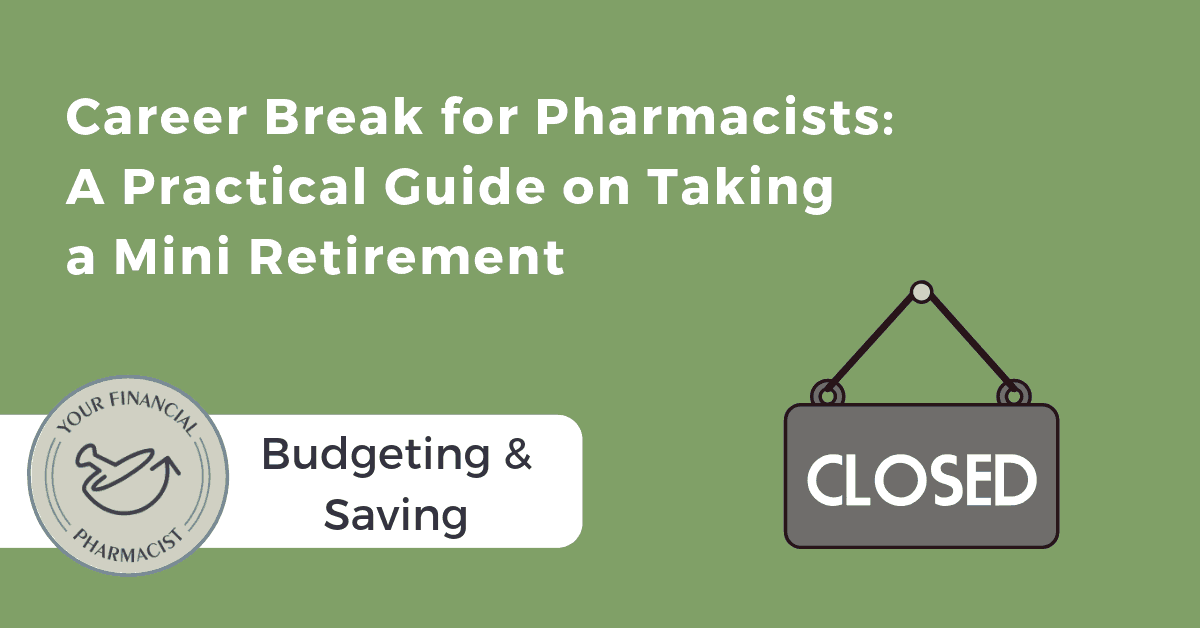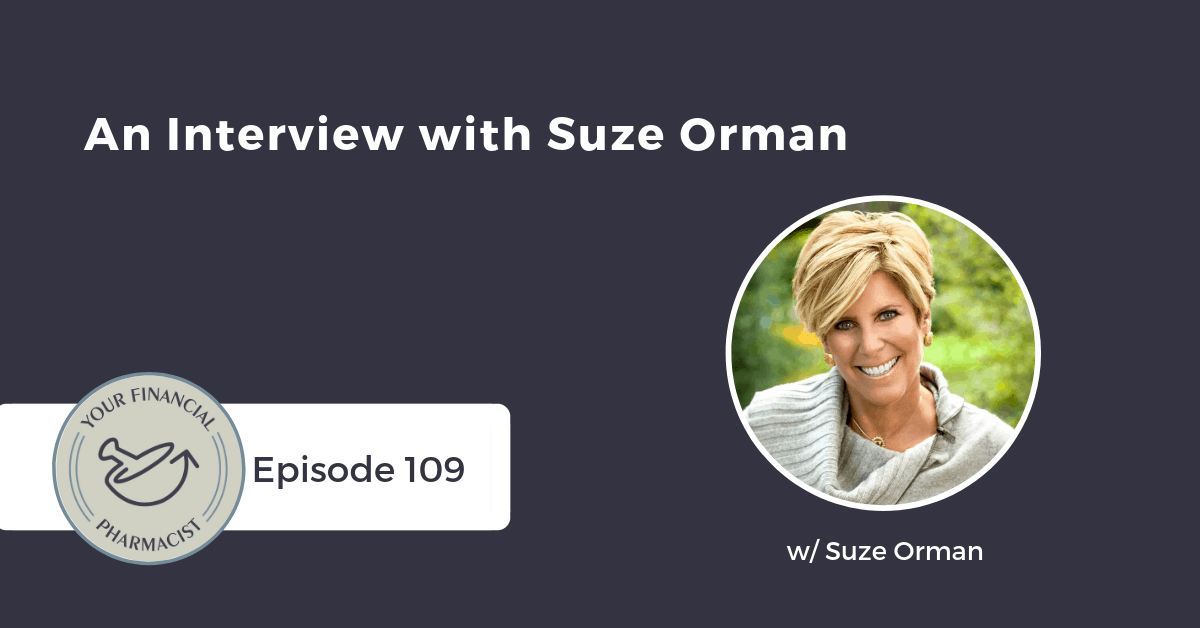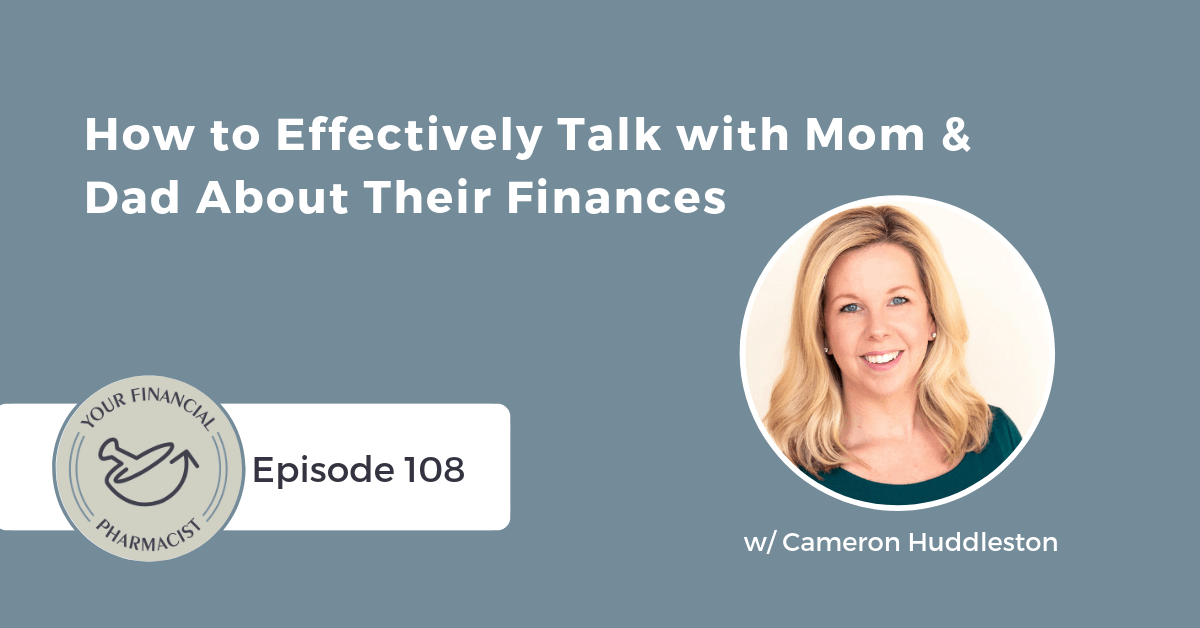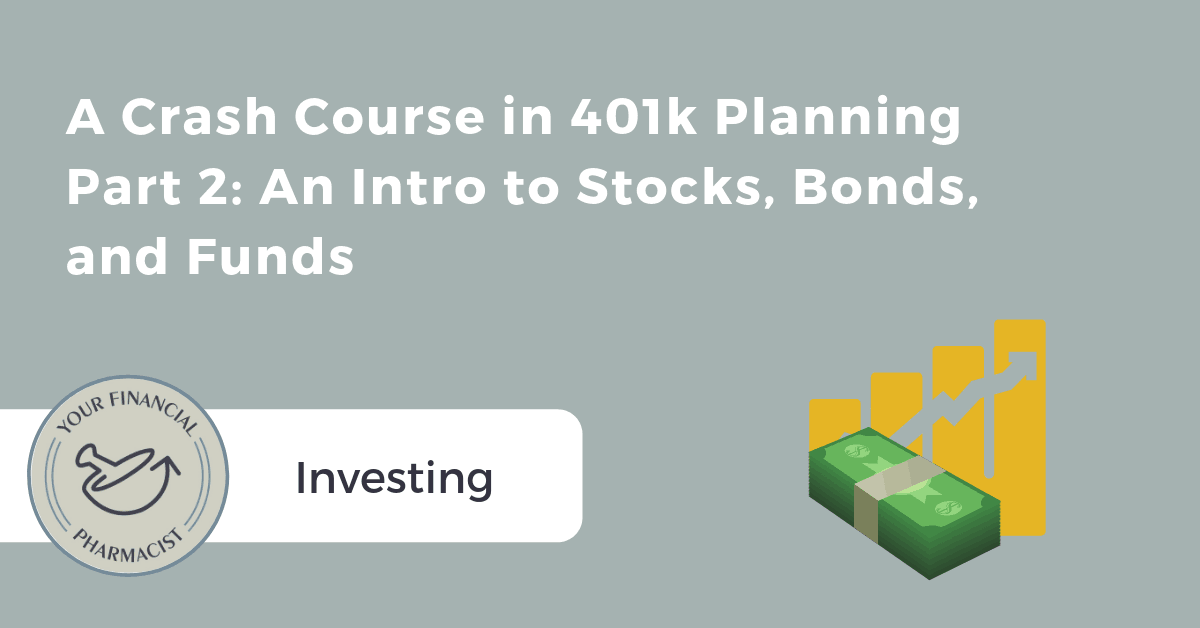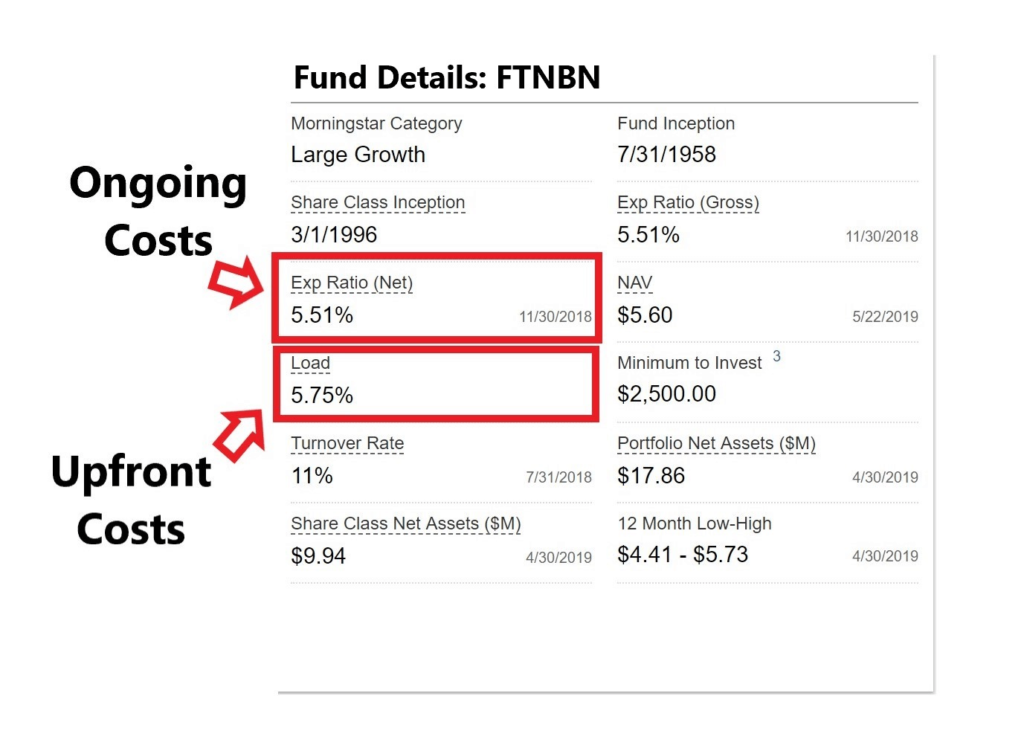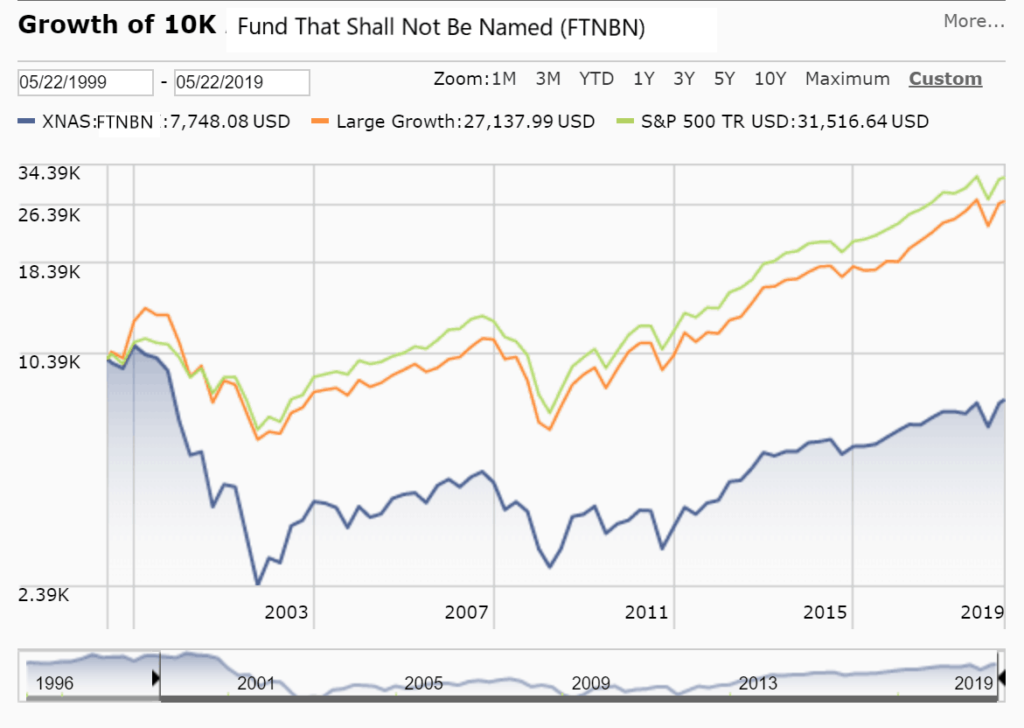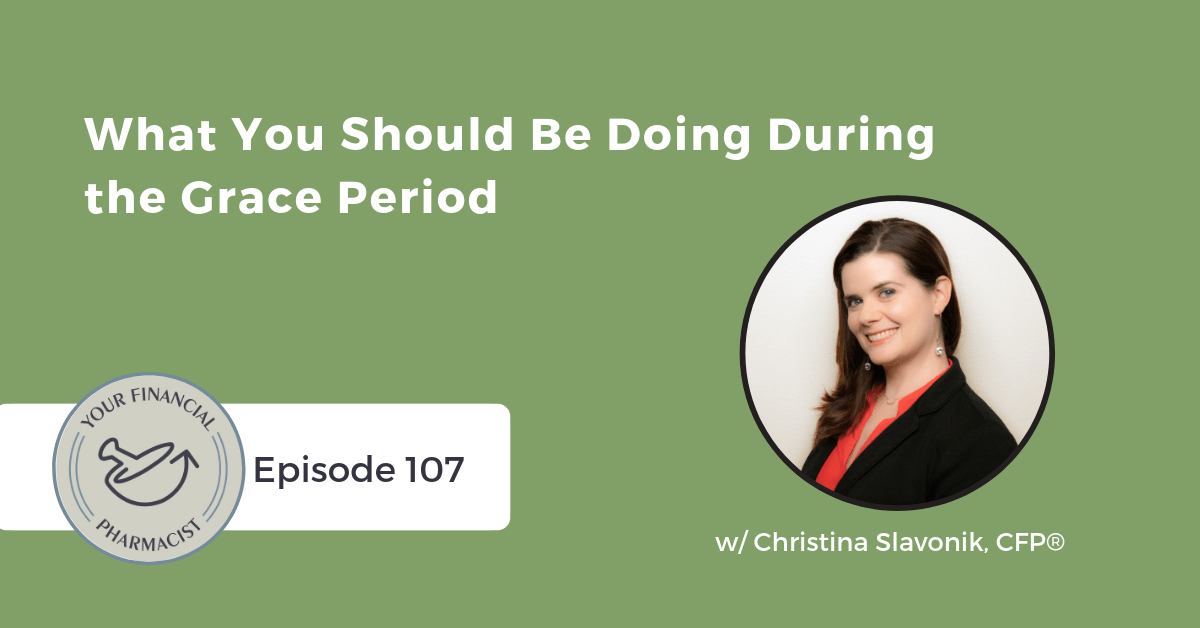Debt Free: How One Couple Overcame Hardship to Pay Off $150,000
Betsy and Casey Hoida join Tim Ulbrich to talk about their debt free journey paying off $150,000 of student loan debt, why and how Betsy left her secure pharmacy job after completing residency and getting board certification and how they managed to work together to get on the same page financially despite some highs and lows along the way.
About Today’s Guests
Betsy and Casey Hoida reside in Green Bay, WI with their two daughters, Mollie and Claire. The couple both obtained their PharmD from Ferris State University in 2006.
Casey is a home infusion and hospice/palliative care pharmacist. He has been working in the field of home infusion for 10 years. Casey specializes in infusions involving antibiotics, anti-fungals, TPN, chemotherapy, PCA, inotropic, immunoglobulin and other biologic drugs. His future plans involve continuing to expand biological services with in the pharmacy as well as introducing MTM services to his patients. Outside of work Casey’s interest in personal finance continues to grow and he plans on pursuing opportunities in fee for service based financial planning.
Betsy has a diverse clinical pharmacy background with experience in a multitude of practice settings. In December of 2017, she left her traditional hospital clinical pharmacist role to take on the position of CEO of the Hoida Household. Currently, she staffs part time in a compounding pharmacy and is obtaining a certification as a Hormone Replacement Therapy (HRT) Specialist with the hopes of using her entrepreneurial spirit to start a consulting business this fall.
Together they paid off $150,000 of debt in 6 years.
Summary
Betsy and Casey Hoida share their journey of paying off $150,000 of student loan debt. They both received their PharmD from Ferris State University in 2006 and have since had diverse careers. After graduating, Betsy worked for a year and then completed residency. In 2017, Betsy realized she was burned out and needed to step away from a traditional pharmacy career. Currently, she staffs part time in a compounding pharmacy and is obtaining a certification as a Hormone Replacement Therapy (HRT) Specialist with the hopes of using her entrepreneurial spirit to start a consulting business this fall. Casey had a retail pharmacist internship and worked for a retail company for a year after graduating. He took Betsy’s long-term care position and fell in love with the infusion portion of pharmacy. He currently works as a home infusion and hospice/palliative care pharmacist and has been working in the field of home infusion for 10 years.
Casey explains that when they graduated, the market for pharmacists was hot. He knew that they carried student loan debt, the majority being his, but he wasn’t worried about finding a job and having a good salary to begin paying it off. Casey took the lead on managing their finances and the couple began moving on paying off their debt. They did two things from the beginning to help them learn how to live off of less; automatically maxing out their 401(k) so they didn’t see the amount on their check and making the shift to living off of one salary.
Betsy explains that the driving force on their mission of becoming debt free stems from not wanting to feel trapped. Casey shares that he was raised to avoid debt, to pay it back quickly if you’re in it and to save. While in the process of paying debt off, he got to the point where he didn’t want to be owned by someone else for the debts he had.
Casey explains that in order to pay off the $150,000 of debt in 6 years, they had to become really intentional with their money and, most importantly, get on the same page. The first year that they were paying it off, they didn’t have a mortgage and used the extra money to chip away at it faster. They continued to remain mindful of their budget and made short term goals (six months or a year). They used overtime earnings and any extra income to go to paying off their student loans. Now that their student loans are paid off, they are so much more relaxed.
Betsy and Casey also discuss why and how Betsy left her secure pharmacy job after completing residency and getting board certification and how they managed to work together to get on the same page financially despite some highs and lows along the way.
Mentioned on the Show
- YFP Planning
- YFP Episode 057: The Power of Automating Your Financial Plan
- Indispensable: The prescription of a fulfilling pharmacy career by Alex Barker
- The Happy PharmD
- Financial Peace University
- Dave Ramsey
- YFP Podcast
- YFP 079: Is it Time to Redefine Retirement with Nick Ornella
- YFP Community
- YFP 022: The Power of Giving
Episode Transcript
Tim Ulbrich: Hey, what’s up, everybody? Welcome to this week’s episode of the Your Financial Pharmacist podcast. I know I say this often, but I mean it sincerely each and every time, and this week is no exception. We have a great episode for you where I’m going to talk with Betsy and Casey Hoida. We’re going to talk about their financial journey. Yes, we’re going to talk about the student loan debt that they paid off. But more than that, we’re going to talk about life, how did they manage this topic together, what does this mean for their future, and we’re going to talk about the impact and how they translate their finances and connecting that with their career. So Betsy and Casey, thank you for your time and welcome to the Your Financial Pharmacist podcast.
Casey Hoida: Thank you. Thank you for having us.
Betsy Hoida: Yeah, we’re super excited. Big fan.
Tim Ulbrich: I am excited. Thank you. We’ve been meaning to record this for some time, and here we are. And before we jump into the interview, I want to read briefly, Betsy, you had sent me an email about a month or so ago, and I think it’s going to help frame our conversation as it gives a little bit of background in your story and then certainly I’m going to ask you to build off of that. So you said, “Hi there. My husband and I love the show. I actually became addicted, and he listens from time to time as well. We’re both pharmacists, but I recently left the profession in search of something else. Not sure what. We’ve had a long but inspirational journey, currently debt-free, minus our mortgage.” So I want to talk about that journey, and before doing so, congratulations on being debt-free except your mortgage. That certainly is no small feat, and I want to talk a little bit about how you did that. So Betsy, let’s start with you. Take us back to your story, your financial journey. You graduate from pharmacy school at Ferris State, and tell us a little bit about your career path, what you did after graduation, and tell us a little bit about your student debt situation and how you viewed this topic of money.
Betsy Hoida: Sure. So I graduated in 2006, and I decided to work initially community pharmacy and then changed my mind last-minute because I had heard about a job in long-term care. So I took that position. I worked for a year, and then I decided to go back and do a residency. At that point, Casey had kind of taken over our debt together. So I really, I didn’t even know what my student loans were, to be honest with you. So I did a residency in our first year of marriage, which was interesting.
Tim Ulbrich: I did that as well. It’s challenging, right?
Betsy Hoida: Yes, it was very challenging. But we weren’t even to the real challenges in life yet like kids and so on. But anyways, to get back to my background, then I decided that we were ready to have kids. I guess we decided, not I decided.
Casey Hoida: It takes two people.
Betsy Hoida: Right. To move back home, which was the UP, but we didn’t want to move back home, so we chose Green Bay, Wisconsin. And I got us both jobs up here. I’m a networker, so at a residency conference, I kind of found about Aurora and got us both jobs up here. And my journey since then has kind of been finding out really what I wanted in the profession and also balancing being a mom, which was really hard for me married to a pharmacist as well.
Tim Ulbrich: And we’re going to come back to that because what really stood out to me when you and I had talked prior to the interview, Betsy, is that as I look at your career path, you know, PGY1 residency, board certification, you were involved in lots of different clinical services, you served as the residency program director, I mean that often for many is really viewed as kind of the premier career path into clinical pharmacy residency training, board certified and so forth. But you ultimately made a decision to pick up and walk away from that, and it’s a little bit of a teaser for our listeners, but we’re going to come back and talk about why. And we’ll talk about the impact of that obviously financially as well. So Casey, before we go into more of that, tell us a little bit about your background after graduating from Ferris State and some of the work that you’re doing now and how you got into that career path.
Casey Hoida: Sure, yeah. I graduated in 2006 also and at that time, we were one of the — not newest classes of PharmDs, but it was fairly new. So we had all this clinical knowledge and were ready to use it. And in pharmacy school, in doing my internship, I was in retail. And so I guess it just kind of made sense that I continued on there once I graduated. So I worked for a company for about a year, and then our career paths, Betsy and I, kind of intertwined here. When she left the long-term care facility to pursue a residency, I actually took her position, and that’s how I got into long-term care. To tell you how I got to where I am now, in long-term care, there was a small IV pharmacy department, and the pharmacist, who was a little bit older than me who was kind of running it didn’t really enjoy, didn’t care much for it. I said, “Oh, wow, this looks interesting.” Potential for me to use more of my clinical knowledge, and so I jumped in and just really kind of fell in love with the infusion portion of pharmacy. And so when we decided to make the move to Wisconsin, as Betsy stated, she was kind enough to find me a position. I didn’t even have to look. And it was for a home infusion position. And I had very limited experience, I interviewed for it, was asked a lot of clinical questions by my director, and he knew that I didn’t have a lot of experience but liked me and thought that I was going to be a good fit and gave me that opportunity to get into a portion of pharmacy that not a lot of people know about, a practice setting that’s not very familiar to many people. And I’ve been there for 10 years now, and I really, really enjoy it.
Tim Ulbrich: So to our listeners, if anybody needs a job or is currently looking for a job, we’ve learned that Betsy is the networker.
Betsy Hoida: You got it!
Tim Ulbrich: So she can help open up those doors. And I love that career path story, though. You know, in terms of the two of you working together. But Casey also kind of finding yourself in somewhat of a “nontraditional” career path, despite not doing residency and other things. But I think that speaks to the value and the power of networking and connections and certainly leaning on your wife where appropriate. So that’s exciting. So I want to hear about the two of you, you graduated from pharmacy school, you’ve got student loan debt, we still are in the time period where the job market’s pretty good, 2006-2007. Obviously, you’re facing somewhat of a significant indebtedness load. And one of the common things that I see among pharmacists, myself included, is there’s this tendency of, hey, I’m going to make great money or I do make great money, I’m not really worried about it. So let’s focus on buying a home and doing these other things. And then all of a sudden, you end up in a position where you feel like, wow, this is a little bit more stressful and we feel more pinched than we thought we would. So did you both have the stress as it related to student loans? Were you worried about it? Were you not worried about it? What was your perspective coming out financially. And let’s start, Betsy, if you want to talk about that.
Betsy Hoida: No. I did not. Because like I said, Casey naturally is great at finances. And I just let him have control over it. I didn’t even pay attention. That sounds horrible. It really does. But you know, that was his gift. And we bought our first house, we didn’t know what we were doing, and yeah. Do you have anything to add to that?
Casey Hoida: Yeah, you know, the first thing that I want to point out just kind of for the listeners is we were really in a different position back then when we graduated in 2006, like you said. It was — the pharmacy market was hot, there was money flowing everywhere, sign-on bonuses and stuff. And so yes, we had this student loan debt, but I wasn’t worried about finding a job and getting a top-end salary. So today, from what I know, that’s a lot different. Kids that are coming out —
Betsy Hoida: Kids.
Casey Hoida: Yeah, I say kids.
Tim Ulbrich: Those kids.
Casey Hoida: Yeah, professionals are coming out from pharmacy school, and the job market is a lot different. And salaries potentially are a lot different than what they used to be. So with that being said, yeah, I was concerned about our debt. I knew that a majority of it was mine, so there was a personal aspect of it that I brought a majority of the debt to our marriage. And I felt more responsible for it, and so it was a worry and it was something that I wanted to address right away. I didn’t want to, you know, utilize it for tax purposes for 20 or 30 years like some people think. So I was definitely on it from the beginning.
Betsy Hoida: We talked about that for awhile. But I wanted to go back, Casey, you talked about us always living on one income.
Tim Ulbrich: Yeah, go ahead. I’d love to hear about that because I think that’s something we’re seeing with graduates today where, you know, expenses go up to the income right away. Or you have two pharmacists or not even two pharmacists, but people that are able to live off of less than they make, whether that’s one income or just a lesser percentage, obviously put themselves in a position to be able to achieve all their goals that they want to achieve but also that you never know what life’s going to throw at you for a variety of reasons. So it gives you margin and flexibility. So I’d love to hear how you made that decision and why you made that decision because that’s a very intentional choice.
Casey Hoida: Yeah. I think there were two things that we did, and I had thought about this in the past and I couldn’t come up with anyone who might have mentioned this to us, so I’m going to take credit for it or Betsy and I can both take credit for it.
Betsy Hoida: No, totally you.
Casey Hoida: The first thing that we decided to do when we graduated and took our first job is we were going to — and we did — automatically max out of 401k’s. And the reason behind that is we wanted to start saving for retirement right away. And we didn’t want to know what our paycheck looked like when we weren’t contributing to retirement. And so you know, there’s pros and cons to that, but that was one thing that we did. And then the other thing that we did and being mindful about it is we knew that at some point in time, we were going to have kids and who knows what the future holds besides kids? And we wanted to be able to live off of just one salary. So when we were looking at purchasing vehicles and buying a home and a majority of our financial decisions were based on can we do this on one salary? And that’s something we’ve lived by since the beginning.
Tim Ulbrich: Such wisdom there. I hope our listeners caught on and especially the students and those transitioning post-graduation, I mean, the two themes that I really heard there were obviously living off of less than you make, which just has so many benefits in so many different areas — and we’re going to come back and talk to those, about those, here in a little bit as we talk about Betsy’s career transition — but also automation. Automation, automation, automation. And you talked about it in the context of retirement. We’ve talked about it before, Episode 057, we talked about automating your financial plan. But if you can put those automation principles in place as early as possible, you’re less likely to feel like you’re missing it. And obviously, that has a significant compound effect over time in whatever goal that you’re trying to achieve. So what I want to talk about here for a minute, before we talk about the specifics of how you paid off the debt — because I think that’s important. We often focus stories on this podcast where we talk about big numbers and short periods of time. But often, we may not necessarily talk about how you exactly did it, and that’s certainly the piece that listeners want to know. But first, I want to talk about this topic even matters to the two of you. So here, we’re getting into the concept of identifying and finding your financial why. What’s the purpose? What’s the vision? What’s the direction when it comes to the finances? Why do you want to become debt-free? Why do you want to save for the future? Why do you want to do all of the things that we talk about on this show? And that could be different for every person. But having that financial why is incredibly important to being able to have that motivation to achieve your financial goals. So I know this is a big, loaded question, but Betsy, when I say that concept of kind of finding your financial why and why does this topic of money even matter, what comes to mind for you first?
Betsy Hoida: Freedom. Just finding out I was not happy where I was. And you know, that could be a number of things. We have children. I was trying to do everything, but I think the biggest thing is I was not using my gifts to — I’m going to give a shoutout to Alex Barker with his book “Indispensable.” I’ve been following him, and my career path or personality is very similar to him, and I think I felt trapped. I know that there’s something for me, and I really want that freedom to be able to explore that. So that’s my why.
Tim Ulbrich: Love that. Freedom and trapped are two words that really start out to me there. Casey, how about you?
Casey Hoida: Well, for me, it goes back to kind of how I was raised. I was raised that you try to avoid or you don’t owe people money. And if you do, you pay them back. And you save. And that was initially my motivation is that’s how I was raised, and that’s how I viewed money. But as I got older and as I gained more experience, I’d have to kind of reiterate what Betsy has already said is that you get to a point in your life where you just don’t want to be owned by anyone. And carrying debt and having all of these payments to make keeps one working and indebted to the system. And we just got tired of doing that. And so we want to have a future that allows us to follow our passions and to just kind of go where we feel like we’re being led.
Tim Ulbrich: That’s awesome, and that obviously directly plays into why you decided to get the student loan debt off your back. So Casey, talk to me for a little bit about, you know, $150,000 roughly of student loan debt, we’re talking about approximately six years, give or take a little bit of time, that certainly is not a plan where you’re just wandering in 10, 15, 20 years. There’s some intentionality in getting those paid off in a relatively short period of time. So how did you guys practically do it? Month-to-month, year-to-year, how were you able to pay off that amount of debt in a relatively short period of time?
Casey Hoida: Well, we first of all just sat down at one point in time — although we weren’t as serious as we are now — but we sat down, we got the number, we looked at it, we were both on the same page that we didn’t like it and we didn’t want it. And so obviously then the next step is how to go about it. And you know, the first couple years in our marriage, we didn’t have kids. So, and I think —
Betsy Hoida: Yeah, we did.
Casey Hoida: I think the first year — well, not right away, did we? Anyways, the first year, we didn’t have a home and so we had some extra income because we were living off of one to really start pounding away at that debt. And so initially, it kind of went fast. Like we were seeing gains month-to-month, year-to-year. And we’re like, oh wow, this is great. And then you add on a true mortgage, not a rental, and you add on some kids and expenses, vehicles and different things, and it starts to slow down. And so I guess what we really did is we just, we remained mindful that it was there, and we made short-term goals, whether that was six months or a year. And we said, OK, well, here’s the number where it’s at right now, and here’s where we want to be in six months or in a year. And so any overtime that was worked or any extra money that we would get from tax returns or anything like that, it all went to the mortgage — or excuse me, to the student loans — which isn’t fun, but it does decrease that number a lot quicker than just making the minimal payment.
Betsy Hoida: I’d like to jump in here, Tim, and say those were Casey’s thoughts. Honestly, honestly, I mean, I think I talked to you about where we hit a fall.
Tim Ulbrich: Yeah.
Betsy Hoida: I was — again, I told you, I wasn’t happy. I couldn’t pinpoint why. So I thought you know what, let’s move into a much bigger house. And let’s just live the ways of the world, this is going to make me happy. Which I was wrong. Spoiler alert. And what had ended up happening was I had after surgery, lost my job. And that was my wakeup call. And at this point — I’m just going to be open and honest here —
Tim Ulbrich: Appreciate it.
Betsy Hoida: That our marriage had hit a low point. And we’d signed up at church for this thing called Marriage Bootcamp. Little did we know that it was actually Financial Peace University. So I put it aside, we’re not doing this, until that low point. And I pulled it out, and I was like, wow, we need to start paying attention to this. Duh. I mean, Casey already was. But I really like how as a team, he is definitely the nerd, and I’m the free spirit. And I’m the one who was finally like, you know what? We have x amount of dollars to pay on this student loan. I know you love the security, but let’s just write the check. Let’s do it. And because I think we had identified that security is so important for both of us, so we did. And on top of that, we really hit the budget in that I wanted to see the numbers. That’s where I started listening to you, I started listening to Dave Ramsey, I just — I didn’t become obsessed, but kind of. I had to because I didn’t know anything about it. And our spending was very intentional.
Tim Ulbrich: So you were a free spirit with a little bit of a conversion to a nerd, you know, right? Along the way. So yeah, and I want to talk about that because I appreciate you sharing honestly some of the back story. And for those listeners that haven’t heard of the nerd-free spirit, that comes from Dave Ramsey’s Financial Peace University. It talks about money personalities, and we tend to fall at different degrees in one of those two buckets, so a nerd or a free spirit. The terms are pretty self-explanatory when it comes to how we manage our finances. But to me, what I love about in hearing your journey is that neither one of those for anybody is right or wrong. It’s a matter of identifying which of those do you tend more towards and how can you effectively work together, especially if you tend not to approach it in the same way. I would even argue for Jess and I, it’s a blessing that we don’t approach this topic in the same way.
Betsy Hoida: Amen.
Tim Ulbrich: Because I think if we were both nerds or we were both free spirits, we may be down a very different path. And I am very appreciative of what she brings to the financial table for us and really helps me look at it in a much different and healthier way, then collectively, we’re able to help each other. So to that point, though, I think often with the nerd-free spirit mindset, there can be tension in that. And so talk to me a little bit more, Casey, about how you were able to navigate that. You know, it sounds like certainly there was some pain there, which necessitated the two of you getting on the same page. But often, I hear from people that say, ‘Hey, I’d really love to dig into this topic, but I feel like I may not be able to get my spouse or my significant other on board. So what worked and didn’t work for you in terms of the two of you getting on the same page financially? Casey, let’s start.
Casey Hoida: Well, I can tell you what didn’t work. And it was trying to impose my financial will on my wife, to simply say, “This is what we’re doing. And this is how we’re going to do it.”
Betsy Hoida: That’s never worked.
Casey Hoida: No.
Betsy Hoida: On anything.
Casey Hoida: And it hasn’t really worked for much of anything, correct.
Tim Ulbrich: She’s a true free spirit, yes.
Casey Hoida: Yes, yes. I mean, you know, I won’t speak for Betsy on this, but one, for her, it helped when she truly became interested in our finances and took ownership on her end. And that’s what I’ll say about that, but then that allowed us to really sit down and one, just have a conversation, what is important to us financially? And what I mean by that is savings, retirement, college funds.
Betsy Hoida: Giving.
Casey Hoida: Giving, yeah, yes, definitely. Giving and mortgage and everything else. And so first, we had to identify what was important to each of us because that, I feel, is important knowledge to have before you can actually put together a —
Betsy Hoida: Cohesive plan.
Casey Hoida: Cohesive plan. And see how wonderful she is at finishing my sentences? Awesome. And so that’s basically it. First, it’s just communication with each other. And then it honestly just started to fall into place. I mean, we would have monthly financial meetings, budget meetings.
Betsy Hoida: They could be heated.
Casey Hoida: They were heated at first, and then they — as we continued on in them because you need to gain experience, they were less heated and they were more productive, and we really started to gain traction at that point in time.
Tim Ulbrich: So Betsy, let me ask — to follow-up on that — ask it this way. I often will talk with people and they may say, ‘Hey, I’m really having a hard time getting my spouse or significant other on board,’ as I mentioned. So from your perspective where maybe Casey was all ready to go and obviously, again, there was pain there that helped to necessitate this, but what advice would you give to those nerds out there of how to effectively engage a significant other that may be more of the free spirit mindset? What works? And what doesn’t work?
Betsy Hoida: So I would approach it as just as, you know, marriage. You keep your side of the street clean, and you know, money is attached to emotion. So really hearing what the other person has to say. And that means sitting down, not duking it out, but you know what I mean. Like we’re going to sit here, and we’re going to get this figured out. And a lot of times, it’s shutting my mouth and listening.
Tim Ulbrich: And building off of that too, going back to what I heard you guys saying your why is that I often will encourage couples — and I’m speaking here out of things I wish I would have done differently and what it took for Jess and I to get on the same page, but if you can start with the why and start with the dream and start with the goals, these month-by-month conversations — I’ll never say easy — but become a little bit easier because you agree on the vision and where you’re going. But if it’s not a shared vision, then I think that month-to-month can be somewhat combative, people shut down, and then you’re certainly resetting the clock. So again, keeping that why and keeping that vision in mind. So the reason I wanted to talk first about the paying off of the student loans and how you guys worked together is because I think that directly relates to, Betsy, to the decision you made that you were kind of unhappy with work, family priorities, prioritizing your marriage, and making the decision to walk away from that and being in the position to do so is really what I want to talk about here. So talk us through for a minute, you know, where were you in terms of just work, you know, externally, people may look at that and say, ‘Hey, you’ve got residency training. You’re board certified. You’ve got a ‘good job.’’ So what was not going well? What wasn’t working? And what was going on that led to you to the decision to say, ‘You know what, I need to walk away and take a break from this.’
Betsy Hoida: First, people thought I was crazy, like you said. But it turned into my health was not — it was slowly going down the drain, I was not taking care of myself, we have a child with special needs, I couldn’t sleep at night, my hair was falling out, I had lost a significant amount of weight. It got to the point of I can’t do this anymore. I can’t do this anymore. I need a break. And that was really hard. And it’s still really hard, I’m not going to lie, being at home and finding out my why. But you know, I’m still working on the board certification stuff. But it’s slowly coming together, and I have a belief that if I keep this path, it’s going to lead me to something. I know it is. I listen to your show, and I’m so inspired. Listening to other pharmapreneurs talking about their journeys is so powerful. And that just kind of keeps me motivated.
Tim Ulbrich: When we had talked a couple weeks ago, Betsy, I took some notes. And you had mentioned that you felt like you were in a crazy cycle. You felt like you had “lost me.” And you felt like you were burned out. And you know, there certainly were physical things that you mentioned there, but I think that many people listening may feel some of that, and they start to see the impact of relationship with family or kids, and what I want to highlight here is the importance of the financial piece to allow yourself to make an alternative decision if you find yourself in that place. And that’s why I love the work that Alex Barker’s doing, his book “Indispensable,” and to me, there’s so much synergy here between finding a fulfilling career and making sure you have yourself in a financial position that allows you to make some of those bold decisions. And sometimes, that is a different full-time job, sometimes that’s working part-time to be with family, sometimes that’s pursuing an entrepreneurial dream. Sometimes, that’s traveling the world for a year and taking the year off like Nick Ornella did that we featured on the podcast.
Betsy Hoida: Yeah.
Tim Ulbrich: I mean, it can look many different ways depending on your why, but the point is you put yourself in a position to do that. And so talk me through, I would assume there was a significant amount of fear there when you made that decision. I’d love to hear from both of you here. But did you put some markers in place to say, hey, before we do this, we want to be out of debt, we want to have a fully funded emergency fund, we want to be here, here, and here? Or were things just at such a point that you said, you know, overall, we’re OK and we’re just going to move on and we’re going to figure it out. So talk me through how you figured out where that place was financially where you could make that jump.
Casey Hoida: Sure. The funny thing is that we were at a financial point where we could do it immediately. We had our emergency fund, the student loans were paid off at that time, we had moved on to paying off our mortgage and were making good strides there. We had no other debt, and yet it terrified — I’ll speak for me, I won’t say us. Betsy will probably agree, but it terrified me for her to stop working.
Betsy Hoida: Oh my gosh, yes.
Casey Hoida: Because we — it was multiple things. One, it was oh, we’re going to lose all of this income and we’re making such great strides on the mortgage and we’re putting additional away in savings, and I don’t want to lose that. But after stepping back and looking back at what our life had become, just a rat race of who’s going to pick up the kids this time, who’s going to — I have to be here to exchange them or I’m going to go to this meeting or whatever the case is. It’s just we were trading off our kids and our lives so each of us could work full-time. And it just got to the point, like Betsy said, where her health was being affected. Mentally, I was exhausted. And I guess —
Betsy Hoida: Or our children. What are we showing our children? You know?
Casey Hoida: Yeah. It just got to the point that we couldn’t take it anymore. And I wish there was something more magical than that. It just got to the point where it had to break. And so we had to say, OK, Betsy — it was best for Betsy to stop working as I carried the insurance and some other things. And so it was best for Betsy to say, I need to step away and take care of myself and take care of my family. And so that’s what we decided to do.
Betsy Hoida: Yeah, best decision. It was terrifying. We had summer coming up. And it’s quality of life as well, you know? Life is short.
Tim Ulbrich: So Betsy, how would you describe, you know, if we used words before like “crazy,” “psycho,” “lost yourself,” and you were burned out, physically, emotionally, etc., like how would you describe it now? I mean, give me some of the words that you would use after you made that decision, what that’s meant for you as a parent, you as a wife, and your family and what would you use to describe that?
Betsy Hoida: I would say I am so much more relaxed. I really, I am. And realize you just day-by-day, day-by-day. I don’t know the future. And we recently had a flood. That would have sent us both into a tailspin, and I’m not going to lie, it was not the greatest waking up in the morning and being ankle deep in water. But we’re able to handle that. And I think, you know, just being I’m at home during the day, so I can handle that kind of stuff and just the nitty gritty details of recovering from the flood.
Tim Ulbrich: And let’s not forget to add that Casey had flood insurance policies in place lined up.
Betsy Hoida: Oh, yeah. So smart. People in this area were shocked because we got hit really hard.
Tim Ulbrich: That’s awesome, and I asked you too because I think I said, “Hey, are you guys in a flood zone?” And you had said no but had that policy in place. So great work, Casey. We talk about building a financial foundation and having a plan to protect your income in emergencies and all those things, and certainly just as important as debt repayment and investing and some of the other things that we talk about on the show. So Betsy, the last question I want to ask you about in terms of this transition away from work is talk to me about the fear of missing out, the FOMO, because I feel like that’s real in pharmacy. It’s real in any profession, but I think for whatever reason, moreso in pharmacy. So again, here you are, board-certified, you’re still working on those very tedious, long board certification exams, right? Residency trained, you’ve had a great career as running out since 2006, but you know, I’m sure you’re having these questions of what does this mean long-term? Am I going to re-enter? Am I going to forget things? Am I going to stay relevant? Am I going to be employable if I want to go back? So is that something you’re still struggling with, the fear of missing out? Or is that something that you’re able to get over quickly as you realize the benefits of the decision that you made?
Betsy Hoida: Honestly, it terrified me until recently where I realized that I’m not going to go back. I really, really believe that there’s something else — I am currently working three hours at a compounding pharmacy, and I’m really interested in bioidentical hormone replacement therapy and care of women around mid-life in that area and also just integrative health, that there’s other areas than just the current board-certification, the stuff I’m learning there, that there’s just more out there. There’s way more out there, that’s what I’m so excited about. And I don’t have to. And I don’t have to know today.
Tim Ulbrich: Yeah, and again, just a shoutout to Alex Barker, the Happy PharmD. For those of you that are looking for something else, he’s doing great work over there, and I think he’s really helping people that are working through situations like what you have talked about. So I want to talk about kids for a minute because, you know, as I hear your story and obviously as a father of three young kids, soon to be four, one of the things that gets me so fired up about this topic is that you guys have put yourself in an awesome position in terms of what you’re teaching your kids, what you’re role modeling, but also what the legacy will be of your family going forward. You’ve become debt-free, you’re working hard to teach them financial principles, you’ve prioritized the time with the family. So the question I have here, which is sort of a loaded question, is you know, knowing you have 6 and 9, is that correct, how old your children are?
Betsy Hoida: Yep.
Tim Ulbrich: OK. Knowing you have kids that are 6 and 9, you know, when they’re grown adults, you know, how do you want them to talk about you guys? What is the legacy that you want to leave in terms of financially and how you’re raising your family and how you’re maybe changing that generation for them going forward?
Casey Hoida: I always thought initially what I wanted for my kids from a financial standpoint is just to have a big pile of money for them when they get older so life won’t be so hard for them. And that was years ago, even semi-recently, that was my thought. And then I started just doing some more searching and thinking. And you know, that’s not the answer. That is not the answer at all is just having money sitting somewhere. That doesn’t teach anyone anything. And so I guess what I’m looking at now is to teach my kids the danger of money and what the love of it can do to you, to your life, to your relationships, and how to hopefully avoid that in their lifetime. That’s the biggest thing, really, is I want them to not be ruled by money because it can put you into a life that is not at all what is going to make you happy.
Tim Ulbrich: Absolutely. And Betsy, talk me through a little bit about what you guys are doing to role model this. I know you’re beginning to do some more of this, but in terms of teaching your kids about money. I know that’s something that my wife and I talk a lot about, we struggle with at times, you know, how can we teach them about this topic that is so big and so important but also make it relevant at where, the ages of where our kids are? So how are you guys approaching the concept of money and teaching that to your children?
Betsy Hoida: Absolutely. I just was emotional for a second about that when he was talking about for me, when you’re giving up — you know, there’s quality time. The time that I’ve been able to spend with them is irreplaceable. And being around for them, they love it. I mean, you know, I’m able to pick them up from school and just invest more in them. But to get back to your question, we are just at that point where we’re starting to teach them. And our oldest is really grasping the fact that — well, she wants all the things. But no, Molly, we’re going to teach you about having a savings account, a spending account, and a giving account. And same with Claire. And I think Dave Ramsey has a program that we can look at, but I kind of, I stole my neighbor’s plan. She does a great job. She is an accountant.
Casey Hoida: I just want to add, I mean, some of the practical things that we’re doing is the girls see us having our financial meeting each month. And they know that it’s occurring, so they’re seeing that. Betsy and I are very mindful when we’re at the store with them that we don’t make just knee-jerk purchases or anything like that. If it’s something that is above a certain dollar amount, I don’t know, I’ll just say $100 — not that that’s our number — but that we have a discussion about it and we’re like, no, we need to save for this and put money away until we have it. We don’t just grab a credit card and buy it that day. Instant gratification, we talk a lot about that in regards to finances. And so along with —
Betsy Hoida: The cars we drive.
Casey Hoida: Yeah, just showing them. We don’t go out to eat all the time, and when we do, we build it up as something special and a treat and not just something you do all the time. Our vehicles are quite old and, you know, just things like that. We’re just very, very mindful about how we talk about money in front of the girls and then what we do with our money in front of them.
Tim Ulbrich: And every single one of those things matters and it has cumulative, compound effects over time. And you know, I can’t remember if I’ve shared this story on the podcast or not, but I can vividly remember — and a shoutout to my parents for this — vividly remember sitting at my kitchen table, probably as early as 7 or 8 years old and getting a weekly allowance and having some of it allocated to savings, some of it allocated to spending, some of that allocated to giving. It might have been dividing up $2 or $3, but it doesn’t matter. You know, eventually that’s going to be $5,000 or $10,000. And those principles get ingrained over time. So whatever you define as those priorities for those of you that currently have kids or will have kids, in addition to not only teaching them those concepts of saving, spending, giving, but also just talking about this. So them seeing that you’re having these meetings, them seeing that you’re working through these issues month-by-month, hearing the discussion, and figuring out that, OK, there’s a process of saving up for something before you spend it and talk it through and not necessarily swipe it on the card, and you know, not have a discussion. So kudos to you guys, I think that’s awesome. And they are, I’m sure, absorbing way more than maybe even you necessarily intend to teach them in the moment. The last piece I want to end up on here is giving. And I know when you and I had talked prior to this recording, you know, as we were talking about kind of a financial why and why does this matter, I had sensed some more philanthropic giving aspirations. And I think you all are in a great position to make this a priority of your financial plan going forward, and it is a hope I have for the YFP community that once you have your own financial foundation and personal finances in place, you’re in a great position to help in many capacities, whether that be with church, local communities, family, anybody that may be in need. And so talk to me about giving for you guys, philosophically how you feel about it and where it fits into your financial plan. So Casey, you want to start?
Casey Hoida: Yeah. Yeah. So just a quick little backstory, so about two years ago as Betsy had indicated, when we were really struggling, we kind of renewed our faith life and became true followers of Christ. And that was a stepping stone for us in regards to giving that — how important I guess it is in one’s life to give back. We’ve received so much and have so many blessings that it’s only right, then obviously, to give a portion of that back. At first, I’ll be honest, when we would go to church, we would give a certain amount because that’s what you’re supposed to do. You’re supposed to just give some money to the church. And when I thought about it more and I thought about where that money was going and who it was helping, it changed for me. And I became more of a cheerful giver, if you will, than just checking a box like, yep, I gave some money to the church. And so I just, I don’t know, I feel that as we continue to grow in our faith life, we realized how important giving is. And I know when you and I talked a few weeks ago, something that you had mentioned and I’ve heard before about having your monthly amount that you give but then having kind of a discretionary amount set to the side for anything that is just put on your heart and you’re like, wow, now I have this money to help this individual or to help this cause or whatever. And that’s something that I had heard before. But when you had mentioned it, it kind of brought it back to the forefront for me. And I think that’s something that Betsy and I want to be more intentional about is having that discretionary money set aside for just anything that would come up. And then we’re really able to give and to help, and I think that’s important.
Betsy Hoida: Show the girls, show the girls. We had a Christmas party this year. You know, Christmas was a big point where it was a really good teaching opportunity in that they got to see we picked some families to sponsor, and they got to see the families themselves receive the presents. And we got to put together boxes to send overseas, and we got to pick out toys for children. And it was awesome. It was really great. I thought it was going to be a difficult time in Target, but they had so much fun. They really did. And —
Casey Hoida: I think they really understood what we were doing and why they were doing it, especially at what Betsy was saying, the Christmas party, where the children receiving the gifts didn’t know they were from us. It was set up a little bit differently. But the girls, our girls, were able to see those kids receive those gifts and the looks on their faces and just experience the joy of sharing, of giving, I think was prominent and right out in the forefront. And that’s what we were so happy that they were able to experience and see.
Tim Ulbrich: Yeah, and there is — as you both know, I’m sure many of our community feel the same way — I mean, there is true power in giving, obviously not only for those that are receiving but also for the giver. I think it really just shifts your mindset and how you look at the rest of the financial plan, how you spend your money, prioritization of things. And so we actually talked about that in Episode 022 of the podcast, the Power of Giving, for those that want to talk a little bit more about that and again, hopefully that’s a vision that we can continue to inspire among this community. So Betsy and Casey, you have truly inspired me. I’ve enjoyed our time together here, also in our pre-recording. When we had talked prior to the recording, I ran home and shared some of your story with my wife. I was fired up about doing this. And I am 100% confident you’re going to inspire our listeners as well. So thank you so much for coming on the show, thank you for taking the time, and thank you for your willingness to share your story. I really appreciate it.
Betsy Hoida: It was wonderful. It’s our pleasure. It was great.
Casey Hoida: Yeah, we really enjoy just sharing our story. And thank you so much for having us on. I really appreciate it.
Tim Ulbrich: Thank you both. And to the YFP community, again, we appreciate you joining us for this week’s episode of the Your Financial Pharmacist podcast. If you have not done so and you’ve liked what you heard on this show or on any other show that we record each and every week, please head on over to iTunes or whatever podcast player you get your information from each and every week. We’d love to hear your feedback. And if you could leave a review in that podcast player, that would help others recognize the show as well. Until next week, thank you again for joining. And have a great rest of your day.
Recent Posts
[pt_view id=”f651872qnv”]


